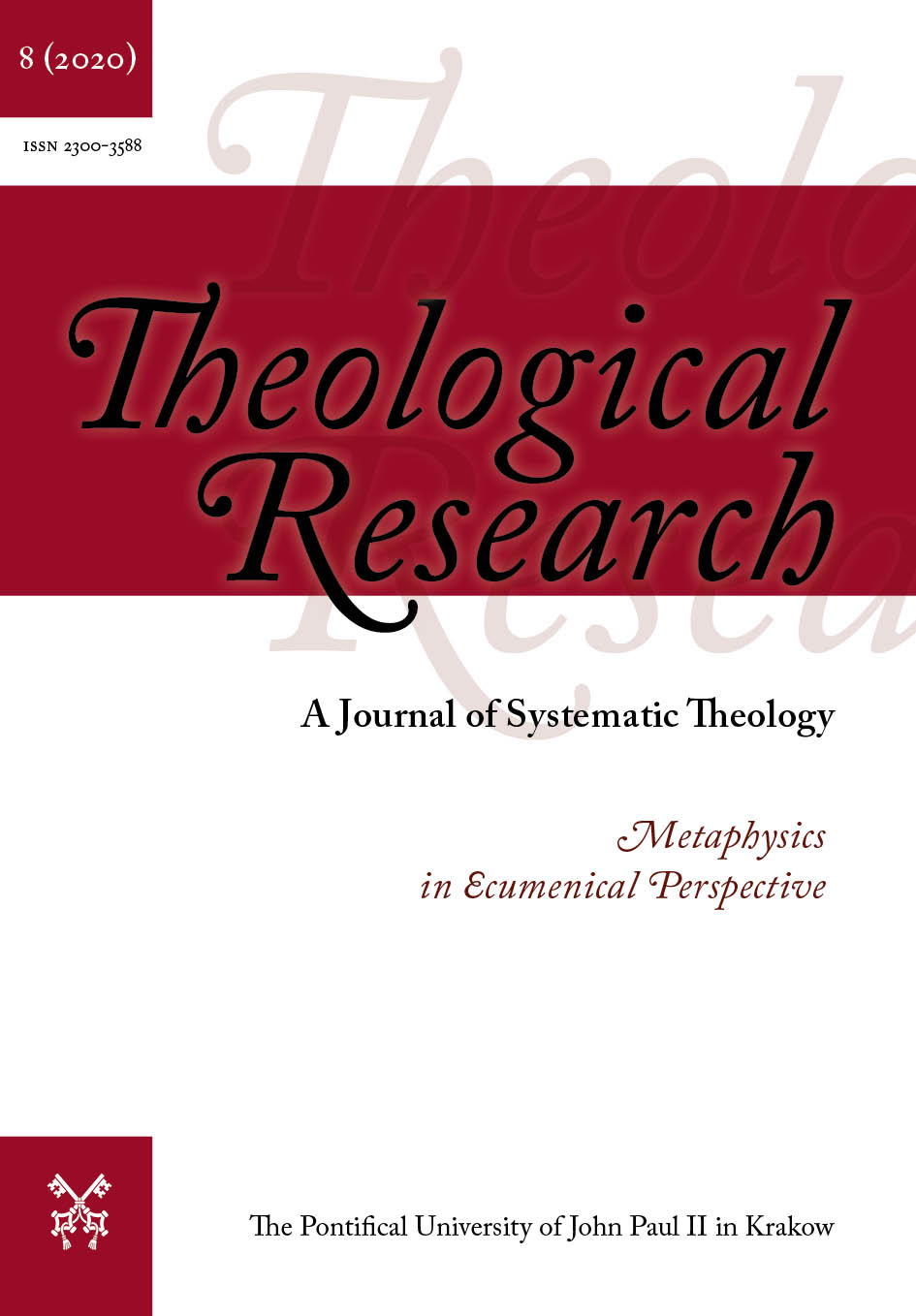Luther’s Participative Ontology
DOI:
https://doi.org/10.15633/thr.4127Słowa kluczowe:
Luther, participative ontologyAbstrakt
Distinguishing between a relational and participative ontology and highlighting the last like a paradigm of our time, the author shows how Luther uses both types of ontology for the explication of justification and how both express the same concept in different ways. The participative paradigm explains justification through the union between Christ and the believer and the following communicatio idiomatum. The author underlines that this is not a personal union, but that Christ and the believer become one body and that this union doesn’t change human nature but giving a person a new direction. The article closes with some ecumenical considerations of the participative ontology.
Bibliografia
Creator est creatura. Luthers Christologie als Lehre von der Idiomenkommunikation, Hrsg. O. Bayer, B. Gleede, Berlin–New York 2007 (Theologische Bibliothek Topelmann 138).
Bayer O., Uns voraus. Bemerkungen zur Lutherforschung und Lutherrezeption, “Lutherjahrbuch” 84 (2017), pp. 170–180.
Beer Th., Der fröhliche Wechsel und Streit. Grundzüge der Theologie Martin Luthers, Einsiedeln 1980.
The Church: Towards a Common Vision. Faith and Order Paper No. 214, World Council of Churches Publications, Geneva 2013.
Haga J., Was there a Lutheran Metaphysics? The interpretation of communicatio idiomatum in Early Modern Lutheranism, Göttingen 2012 (REFO500 Academic Studies 2).
Joest W., Ontologie der Person bei Luther, Göttingen 1967.
Lutero e la Theosis, a cura di F. Buzzi, D. Kampen, P. Ricca, Torino 2019.
Luther M., Vom Abendmahl Christi. Bekenntnis (1528), in: D. Martin Luthers Werke: kritische Gesammtausgabe, Hrsg. J.K.F. Knaake et al., Weimar 1902, pp. 261–509 (Weimarer Ausgabe 26).
Luther M., Wochenpredigten über Joh. 6-8, in: D. Martin Luthers Werke: kritische Gesammtausgabe, Hrsg. J.K.F. Knaake et al., Weimar 1907, pp. 1–675 (Weimarer Ausgabe 33).
Mannermaa T., Christ Present in Faith, Minneapolis 2005.
Mannermaa T., Der im Glauben gegenwärtige Christus. Rechtfertigung und Vergottung, Hannover 1989 (Arbeiten zur Geschichte und Theologie des Luthertums, Neue Folge 8).
Mannermaa T., In ipsa fides Christus adest. Luterilaisen ja ortodoksisen kristinuskokäsityksen leikkauspiste, Helsinki 1981 (Missiologian ja Ekumeniikan Seuran julkaisuja 30).
Mattes M., Luther on justification as forensic and effective, in: The Oxford Handbook of Martin Luther’s Theology, eds. R. Kolb, I. Dingel, L. Batka, New York 2014, pp. 264–273.
Saarinen R., Gottes Wirken auf uns. Die transzendentale Deutung des Gegenwart-Christi-Motivs in der Lutherforschung, Wiesbaden 1989.
Steiger J.A., Die communicatio idiomatum als Achse und Motor der Theologie Luthers. Der “fröhliche Wechsel” als hermeneutischer Schlüssel zu Abendmahlslehre, Anthropologie, Seelsorge, Naturtheologie, Rhetorik und Humor, “Neue Zeitschrift für Systematische Theologie und Religionsphilosophie” 38 (1996), pp. 1–28.
Union with Christ. The New Finnish Interpretation of Luther, eds. C.E. Braaten, R.W. Jenson, B. William, Michigan, USA – Cambridge, U.K. 1998.
Pobrania
Opublikowane
Numer
Dział
Licencja
Autrzy publikujący w czasopiśmie "Theological Research" zgadzają się na następujące zasady:
a. Autorzy przenoszą na rzecz Uniwersytetu Jana Pawła II w Krakowie (UPJPII) autorskie prawa majątkowe do swoich tekstów.
b. UPJPII udostępnia teksty na platformie wydawniczej, na licencji Creative Commons Uznanie autorstwa-Użycie niekomercyjne-Bez utworów zależnych 3.0 Polska, która umożliwia ich pobieranie i udostępnianie (np. w repozytoriach naukowych), o ile zostaną spełnione warunki:
- podany autor i tytuł tekstu,
- podane miejsce publikacji (tytuł czasopisma i adres internetowy do oryginalnie opublikowanego tekstu),
- tekst będzie dystrybuowany w sposób niekomercyjny.

